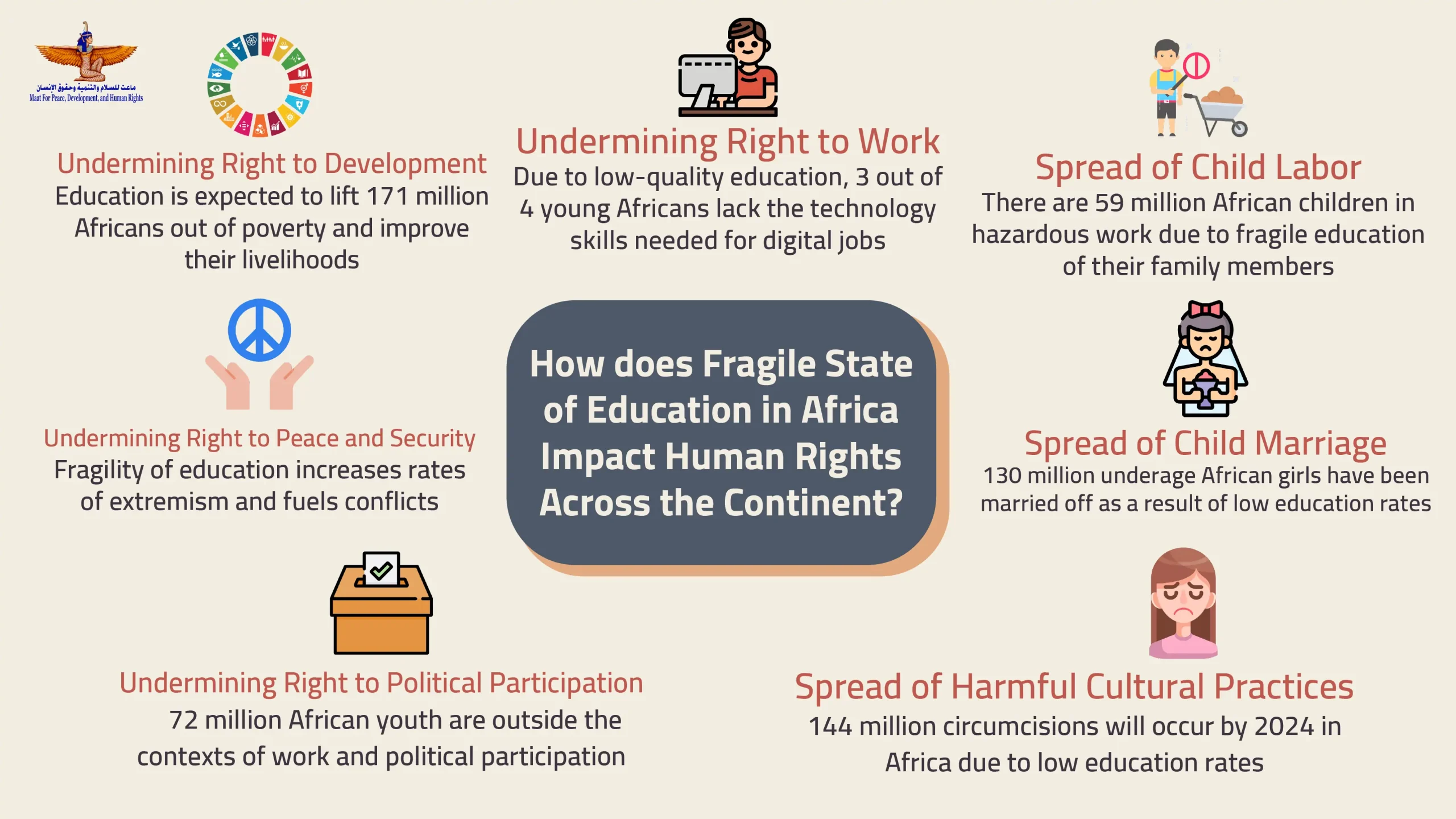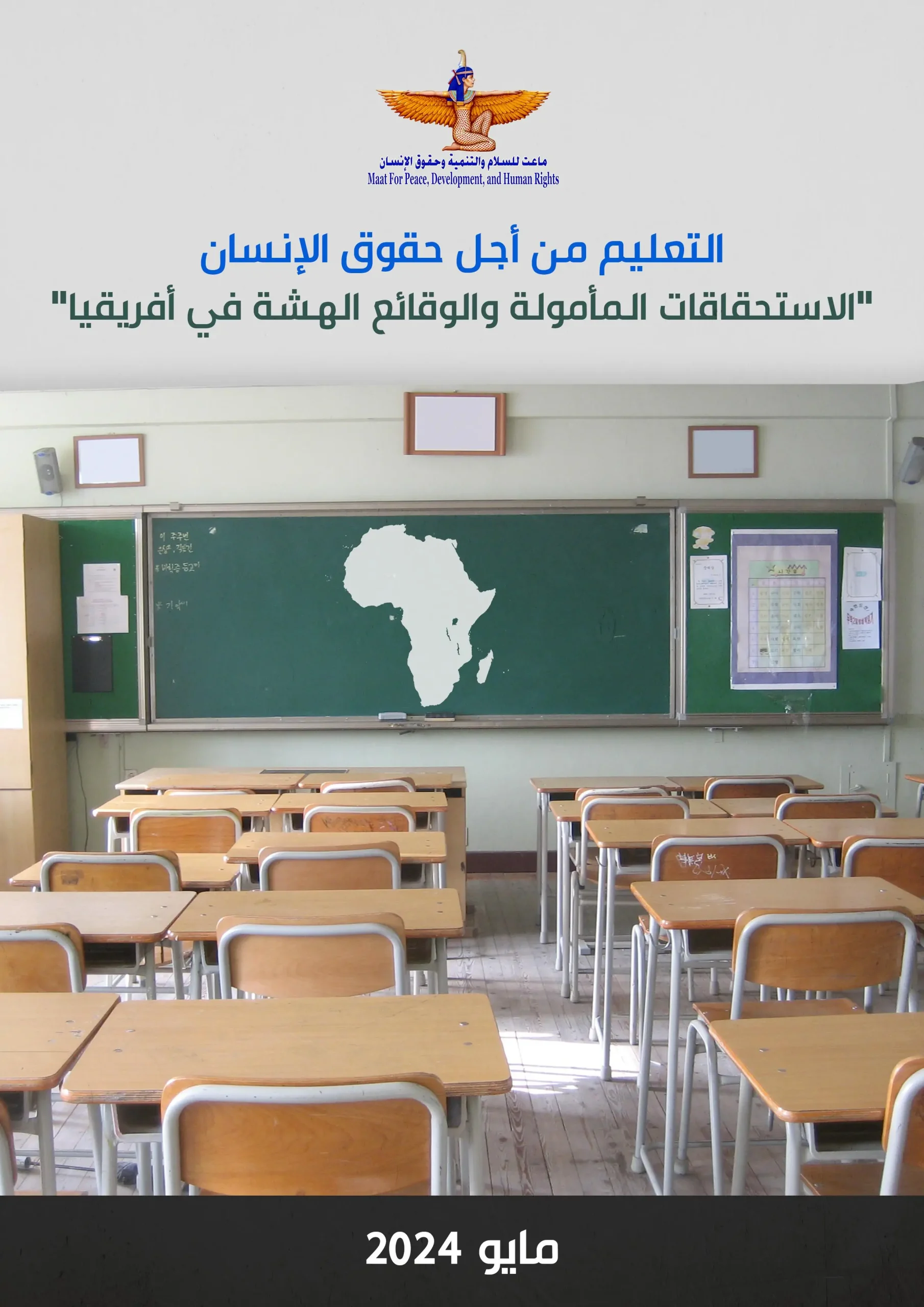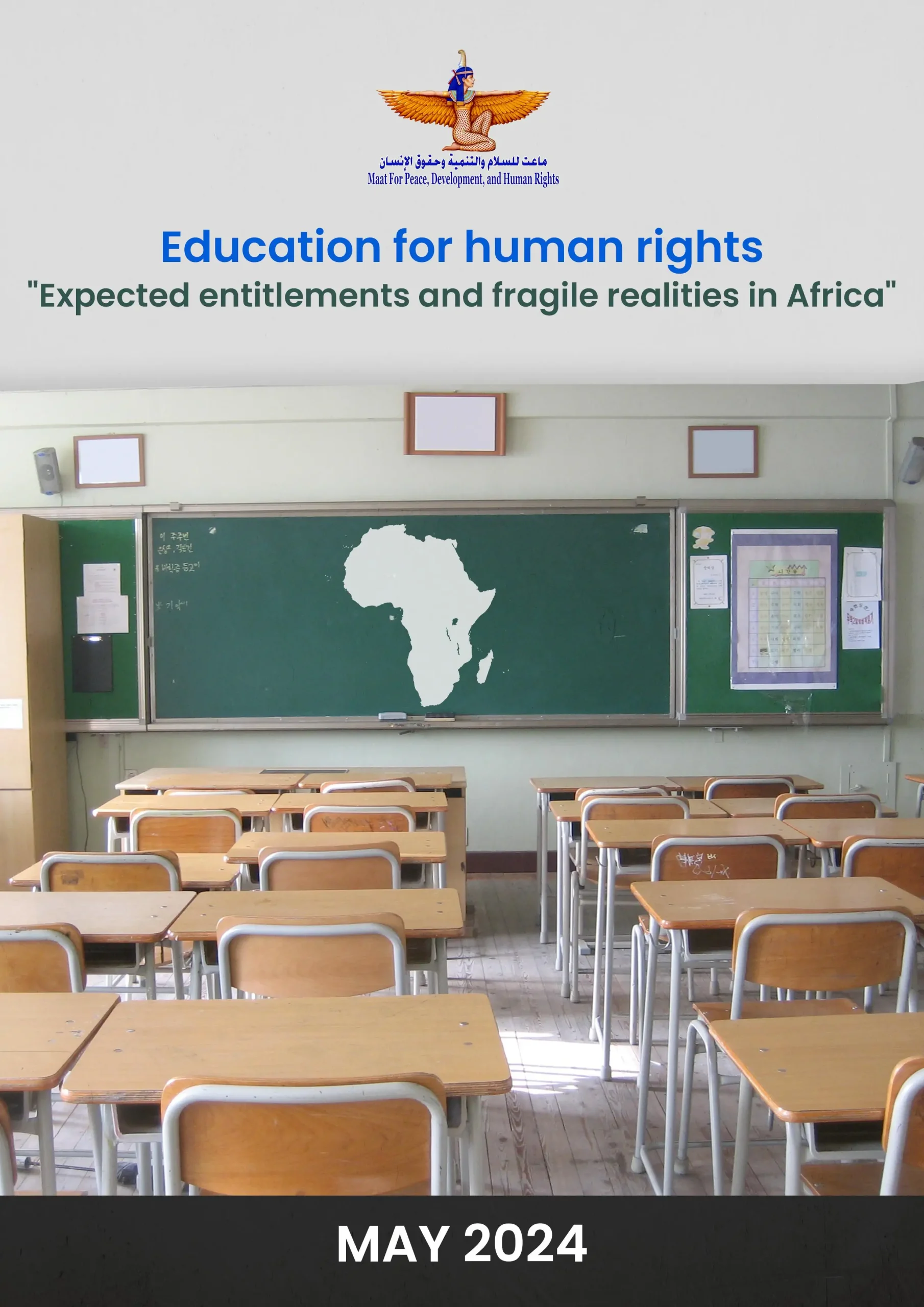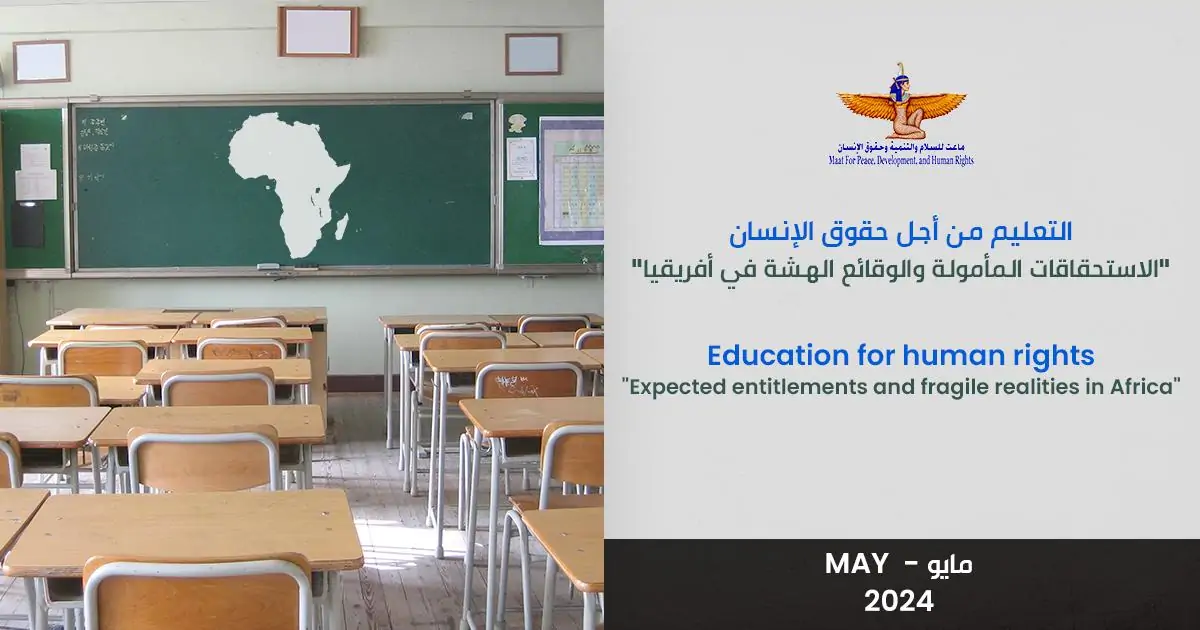In a new study, Maat evaluates the causes of educational fragility in African continent and analyzes the resulting human rights impacts
Okeil: We recommend that African Commission and governments in Africa work together to promote education for human rights
On the sidelines of its participation in the 79th session of the African Commission on Human and Peoples’ Rights, Maat for Peace, Development and Human Rights issues a study titled "Education for Human Rights: Expected Entitlements & Fragile Realities in Africa," in which it presents an evaluation view of the theme of the African Union 2024 and monitors the reasons for the fragility of African education. It analyzes the human rights impacts resulting from the fragility of education, and presents a number of recommendations that would strengthen education for human rights.
The findings indicate that despite the continent's efforts, the realities of African education remain fragile. The study cites alarming statistics, including a decline in basic literacy skills among 4 out of 10 African children and youth over the past three decades, as well as a projected shortage of 9.5 million teachers and 9 million classrooms by 2050.
The study identifies the primary drivers of educational fragility as poor funding, inadequate infrastructure, high dropout rates, conflict, and the expansion of terrorism. In 2023, violent incidents affecting education increased by 20% compared to 2022, particularly in Nigeria, Sudan, and the Democratic Republic of the Congo. Notably, half of out-of-school children in Africa reside in conflict-affected areas, and 11,100 schools have been forced to close due to violence and threats against teachers and students.
Commenting on the study, Ayman Okeil, an international human rights expert and Chairman of Maat, emphasized the far-reaching consequences of educational fragility. It undermines the right to development and security, which are essential for achieving economic progress and social equality. Furthermore, it hampers political participation, as the lack of education has led to limited youth engagement in civil, legal, and political spaces.
Okeil, has called on the African Commission on Human and Peoples' Rights to provide technical and advisory assistance to African governments. This would help address the legal and legislative gaps between international/regional education obligations and the domestic legal/constitutional frameworks of African countries. Okeil emphasized the need to reformulate, revise, and amend African continental or national education development plans and visions to enhance quality. Additionally, Okeil urged development donors in Africa to increase investments that support education projects and plans, particularly in fragile countries such as Ethiopia, Sudan, Somalia, and South Sudan.
Passant Essam Al-Din, Director of Sustainable Development Unit at Maat, stressed the importance of the African Union mobilizing the financing capabilities of the continent's governments. This includes accelerating the launch and operationalization of the African Fund for Education, Science, Technology, and Innovation.
Furthermore, Sayed Gharib, a researcher at Sustainable Development Unit, called on African governments to increase their financial investments and intensify research to upgrade and modernize school curricula. This would align them with market needs, sustainable development requirements, and the Africa 2063 Agenda, to ensure these curricula reach all marginalized and underserved areas, while also improving the teacher-to-student ratio.


 |
 |
shortlink: https://maatpeace.org/en/?p=42192












